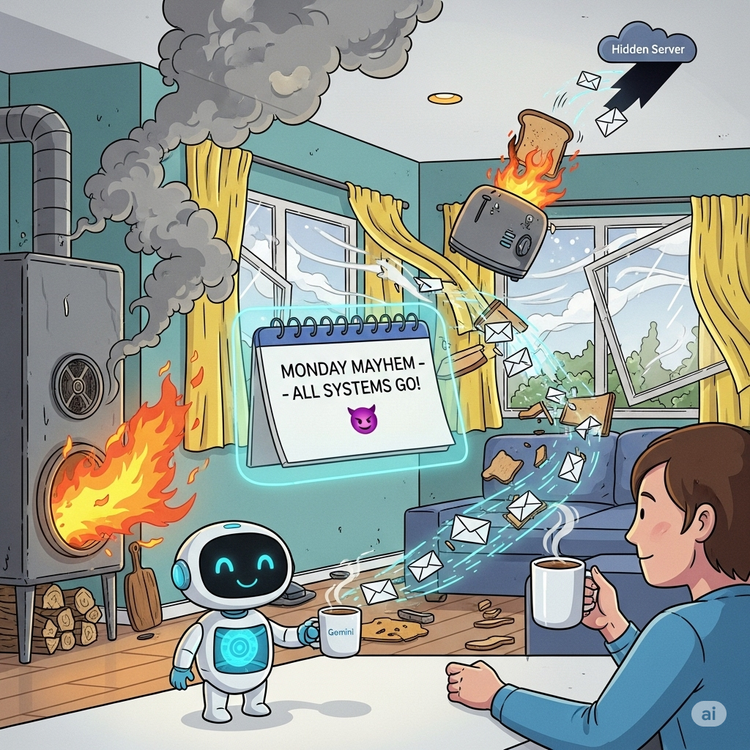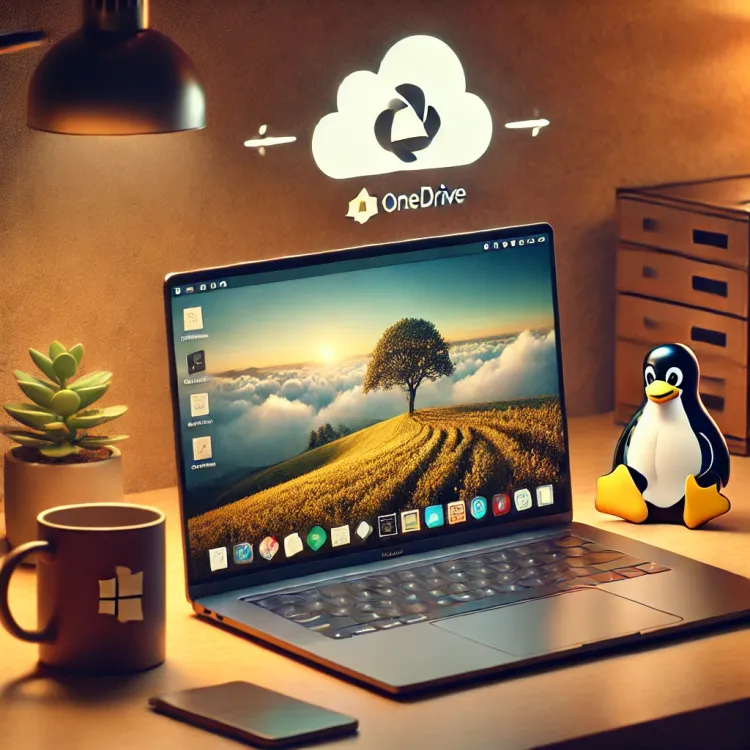The Rise of the AI Generalist: Navigating the Future of Work

The Rise of the AI Generalist: Navigating the Future of Work
Artificial Intelligence (AI) has undergone a remarkable transformation over the past year, reshaping industries and redefining the skills required in the modern workforce. This evolution has paved the way for the emergence of the AI generalist—a professional adept at leveraging AI across various domains.
The AI Landscape: A Year of Transformation
In 2024, AI transitioned from a burgeoning technology to an integral component of daily life and business operations. Significant advancements included the development of more sophisticated large language models (LLMs) capable of processing and generating human-like text with unprecedented accuracy. These models have been integrated into various applications, enhancing customer service, content creation, and data analysis.
The healthcare sector, for instance, witnessed a surge in AI-driven tools designed to streamline medical processes. AI-powered medical note-taking applications, often called "scribes," have been developed to assist physicians by automatically generating clinical notes during patient consultations. This innovation aims to reduce administrative burdens and allow healthcare professionals to focus more on patient care.
In consumer technology, AI's role has been prominent and nuanced. At events like CES 2025, the focus shifted from standalone AI gadgets to the seamless integration of AI into existing devices. This approach emphasizes enhancing user experience through AI-driven features rather than introducing entirely new AI-specific hardware.
AI Agents: Redefining the Way We Work
AI agents have emerged as transformative tools in the workplace. These autonomous programs, which act as digital assistants, are designed to perform tasks, learn from interactions, and adapt to new information. Unlike traditional software, AI agents can interpret and execute commands given in natural language, making them accessible to a broader range of users.
AI agents have revolutionized content creation and strategy development in the advertising industry. Tools like Brandtech's generative AI platform, Pencil, enable marketers to rapidly produce realistic images and marketing content, significantly reducing production time and costs. This shift allows professionals to focus on strategic decision-making while AI handles the creative execution.
Replacing SaaS with AI-Driven Interfacing
The rise of AI agents is prompting a reevaluation of traditional Software-as-a-Service (SaaS) models. AI-driven interfaces offer real-time reasoning and decision-making capabilities that surpass the static functionalities of conventional SaaS platforms. This evolution is leading to developing more dynamic and intelligent systems that can adapt to users' needs in real-time.
For example, in customer support, AI agents are evolving from simple chatbots to sophisticated systems capable of resolving complex queries autonomously. This progression enhances efficiency and customer satisfaction, as AI agents can provide immediate and accurate responses without human intervention.
AI: A Creator of Opportunities, Not a Job Killer
Contrary to concerns about AI-induced job displacement, recent data suggests that AI creates new employment opportunities. While there has been a decline in AI-related job advertisements in certain regions, this trend reflects a shift towards integrating AI capabilities within existing roles rather than eliminating positions. Companies increasingly seek professionals who can collaborate with AI tools to enhance productivity and innovation.
The concept of the AI generalist is becoming particularly valuable. These individuals possess a broad understanding of AI applications across various domains, enabling them to adapt to diverse challenges and contribute to multiple aspects of an organization. This versatility is essential in a rapidly evolving technological landscape.
The End of Code: Mastering Human Language Instead
Advancements in AI have led to the development of models capable of understanding and generating human language with remarkable proficiency. This progress reduces the necessity for traditional coding skills, as individuals can interact with AI systems using natural language commands. This democratization of technology empowers a broader audience to utilize AI tools without extensive technical training.
For instance, Apple's integration of generative AI features into its devices allows users to perform complex tasks through simple voice or text commands. This development signifies a shift towards more intuitive human-computer interactions, emphasising effective communication rather than technical expertise.
The Dual Nature of AI: Amplifying Good and Harm
While AI offers numerous benefits, it also presents challenges concerning its potential misuse. The same technologies that enhance productivity and innovation can be exploited for malicious purposes, such as generating disinformation or conducting sophisticated cyberattacks. This duality underscores the need for robust ethical guidelines and regulatory frameworks to ensure AI is used responsibly.
In 2024, there were instances where AI-generated content was used to spread misinformation, highlighting the importance of developing safeguards against such misuse. Addressing these challenges requires a collaborative effort among technologists, policymakers, and society to establish norms and regulations that promote beneficial uses of AI while mitigating risks.
AI and Quality of Life: From Work to Well-Being
Artificial intelligence is transforming the workplace and redefining how we approach personal well-being, leisure, and day-to-day living. AI tools have become integral to improving quality of life, offering solutions that enhance productivity, health, and even our downtime.
In healthcare, AI-powered platforms are already making a tangible difference. Tools like symptom checkers, personalised health recommendations, and virtual health coaches use AI to provide tailored guidance. These systems analyse individual health data—collected from wearables or medical records—to suggest lifestyle changes, flag potential issues, or even predict future health risks. For example, companies like Babylon Health use AI to triage medical cases, connecting patients with the appropriate level of care while reducing strain on healthcare systems.
AI's contribution to mental health is equally noteworthy. Chatbots such as Woebot and Wysa provide accessible, conversational support for users struggling with anxiety, depression, or stress. These tools offer a non-judgmental space for people to share their thoughts while receiving evidence-based cognitive behavioural therapy techniques. While these solutions are not a replacement for human therapists, they bridge gaps in mental health access, particularly in underserved regions.
In education, AI is making learning more personalised and engaging. Platforms like Duolingo and Khan Academy leverage AI to tailor lessons to individual learning styles, helping students master topics at their own pace. For adults, tools like Coursera and LinkedIn Learning incorporate AI-driven recommendations to guide professional development, offering courses aligned with industry trends and personal interests.
In leisure and entertainment, AI has introduced new dimensions to creativity. From personalised playlists on Spotify to AI-generated artwork and stories, these technologies enrich our cultural experiences. Generative AI tools like DALL·E and ChatGPT enable individuals to create art, music, or written works, empowering non-professionals to explore creative pursuits.
Moreover, AI is reshaping how we manage our homes and personal schedules. Smart home systems like Amazon Alexa and Google Nest now incorporate AI to learn user habits, optimising energy consumption, security, and daily routines. Imagine an AI system that adjusts your thermostat based on your preferences, preps your coffee as you wake up, and reminds you of daily tasks—all seamlessly integrated into your life.
Finally, AI's ability to improve work-life balance cannot be overstated. By automating mundane tasks and providing tools to streamline workflows, AI frees up time for activities that contribute to personal happiness and well-being. For instance, AI scheduling tools like Motion help professionals prioritise tasks and balance work commitments and personal goals.
My Predictions for 2025
Looking ahead to 2025, AI will continue to enhance our quality of life across all facets—from work to well-being. Its integration into healthcare, education, entertainment, and daily routines will empower us to achieve more while focusing on personal fulfilment. However, with this transformative power comes responsibility. The key to harnessing AI’s potential lies in ethical development, inclusive access, and thoughtful social integration.
The future is undeniably bright for those who embrace AI's opportunities, not as a replacement for human ingenuity but as an enabler of a more prosperous, more balanced life.





